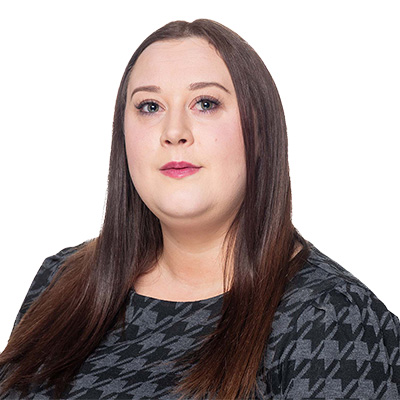Tax is a complicated, continually changing area. Because of this, it makes sense to take specialist advice to ensure that you are protecting your assets, using the exemptions you are entitled to and minimising your exposure to tax.
Click here to read a full transcript of this Tax planning and asset protection video. Or alternatively you can select captions in the video panel.
For instance, if you own property and have savings, Inheritance Tax may significantly reduce what is available to go to your beneficiaries on your death and assets may need to be sold to pay the tax. However, there are ways to mitigate Inheritance Tax liability, which may be suitable for you depending on your personal and financial circumstances.
Income Tax and Capital Gains Tax may also be important issues for you if you are a private business owner or shareholder. A Capital Gains Tax liability can arise as a result of investments, disposal of a business, land or other assets and it is important you understand your tax liabilities and options in such cases.
Seeking expert tax advice and guidance early about your specific situation is a sensible move, enabling you to effectively plan ahead for you and your family.
Frequently asked questions
Here we answer some of the frequently asked questions about tax and asset protection. For more information on tax on gifts, Inheritance Tax or asset protection in relation to care costs, see our Tax on Gifts, IHT Planning or Asset Protection and Care Costs pages.
Am I paying the right amount of Income Tax?
How much tax you pay is based on your total income for the tax year concerned. To make sure you pay the right amount of tax, HM Revenue & Customs (HMRC) allocates an individual tax code to you. Everyone is entitled to a Personal Allowance, which is the amount of income you do not have to pay tax on.
You should check your PAYE tax code to confirm that it is correct, especially if you have recently changed jobs or perhaps started a second job. Other changes to your income may include receipt of a taxable state benefit or a new source of income, for example rental income. You can check your PAYE tax code through your Personal Tax Account with HMRC and let them know if any changes are required.
If you are paying too much tax, this can be reclaimed from HMRC but you will have to provide them with the relevant documents confirming you have paid too much tax.
It is possible that you might not be paying enough tax. Again, you should make sure you have all the relevant documents and contact HMRC as soon as possible.
Do I need to think about succession planning?
If you own your own house, a family company or business, landed estate or farm, it would be wise for you to consider planning for the future ownership for these types of assets at the earliest opportunity so that you can plan for and mitigate any tax liabilities as far as possible. This type of planning is not always straightforward as no two families’ circumstances are the same, each having their own complexities.
When planning for succession, there are a number of elements to think about including:
- Who is to inherit and when will they inherit?
- How to structure your succession plan according to your particular needs and wishes
- Planning for Inheritance Tax liabilities and mitigation of other taxes
- Family dynamics
Implementing a good succession plan early can provide savings in tax, protect against family disputes and guard against unwanted claims on your estate, whilst also providing peace of mind.
Find out more about succession planning for businesses.
Am I likely to be liable for Capital Gains Tax?
If you have disposed of a chargeable asset you may be liable for Capital Gains Tax. A chargeable asset includes property, shares or a business asset. Disposing of an asset includes selling it or gifting or transferring to someone else.
Capital Gains Tax is payable on your overall gains above the annual exempt amount. The taxable gain is worked out by calculating the sale proceeds less what you paid for it (or market value if it was a gift) and any allowable expenses. Some reliefs may also be available to be claimed. If your resulting gain is above the annual exempt amount then Capital Gains Tax will be payable.
If your total taxable gains are under the annual exempt amount you may still need to report the disposal if you fall within the reporting requirements.
If you make a loss on the asset, you can report this to HMRC and the loss will be available to offset future gains.
How is Capital Gains Tax calculated?
Your liability for Capital Gains Tax is calculated based on the total gains you have made in the tax year. You can also offset any losses against this. Your losses can be carried forward from previous years if they have not previously been considered for capital gains tax purposes.
How can Thorntons help?
At Thorntons our specialist team of asset protection Solicitors are well placed to advise you on tax-efficient methods of estate planning that will not leave you on the wrong side of HMRC. They have many years of experience dealing with a broad spectrum of clients, including individuals, families, business owners, farmers and estate owners, and will help you find the solutions which are most appropriate to your circumstances and needs.
During the tax year our tax advisers can review for you any possible business, land or other asset disposal to ensure advantage is taken of any Capital Gains Tax exemptions and reliefs. We can also complete your annual Tax Return or repayment claim (including dealing with capital gains and losses), check notices of assessment and coding notices issued by HMRC, deal with any appeals and agree any liability or repayment. We make it simple. Just hand over all the relevant paperwork and we do the rest. We can even do this on an ongoing annual basis for you, so that you benefit from the peace of mind that your tax affairs are in order and correctly assessed.
Call the Thorntons Private Client team on 03330 430150 to find out more about tax planning and asset protection. Or complete our enquiry form and we will contact you.
Our Services
We offer a full range of Private Client services, available through our network of offices










































































